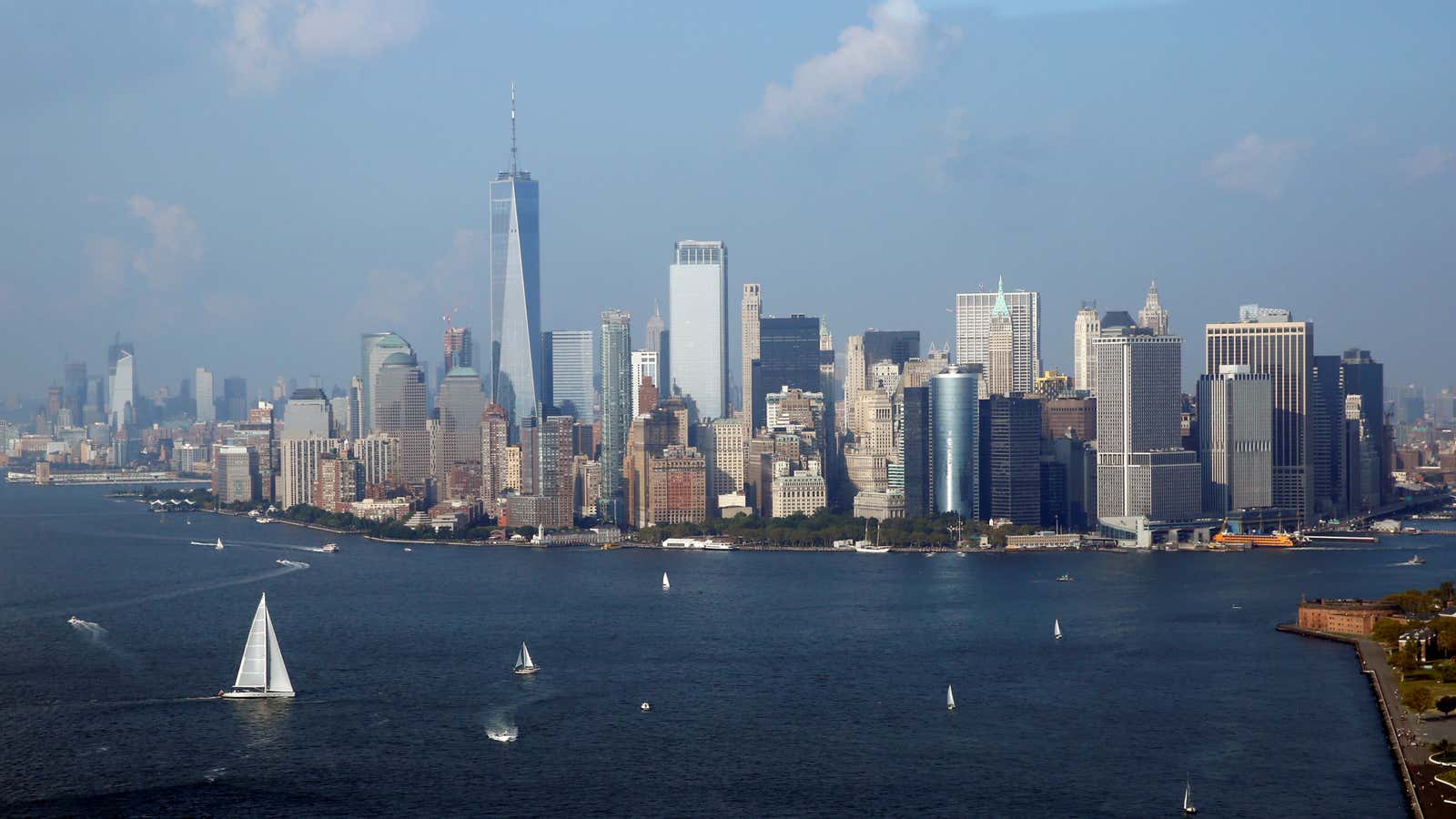Donald Trump has spent the past two years—on the campaign trail and in office—railing about how the US has lost its competitive edge and how corporate-tax reform must be one of the pillars of his presidency. The latest Global Competitiveness Report from the World Economic Forum tells a slightly different story.
After three years in third place, the US has climbed up one spot to be the second-most competitive country in the world, after Switzerland—its highest ranking in eight years. The US edged out Singapore, which slipped to third.
The WEF measures competitiveness by considering 12 factors that would determine the level of productivity in a country, including institutions, infrastructure, macroeconomic environment, health, education, financial-market development, technological readiness, market size, and innovation. It also takes into account a survey of nearly 13,000 business executives from 133 countries. While the survey took place between February and June 2017, when markets and businesses were feeling particularly optimistic about Trump’s promises for deregulation and tax reform, many of the other measures reflect longer-term changes, with up to a two-year lag.
Despite the US’s high overall ranking, there is plenty of room for improvement. The world’s largest economy ranks 25th for “basic requirements,” with particularly low scores for its macroeconomic environment, which considers national debt and the government’s budget balance. It also scores relatively low for primary education and health. Still, the US has top scores in areas the WEF call “efficiency enhancers,” such as financial-market development, market size, higher education and training, and innovation.
While Trump’s claim that the US has the highest corporate tax rate in the world can be debated (yes, the statutory rate is very high at 39% but once deductions and claims are taken into account it falls to about 18%) there is support among the executives surveyed by the WEF to do something about taxes. When asked to pick the most problematic factors for doing business in their country, the top two issues cited in the US were tax rates and tax regulations.
Meanwhile, Switzerland retains the top spot it has held for at least the past six years. In particular, the Swiss labor market is ranked as the best-functioning globally, while the country earns second place worldwide for adopting technology to increase productivity.
Though Israel ranks 16th overall, the WEF finds that it’s the third most-innovative economy. This hasn’t gone unnoticed as Silicon Valley venture capital pours into the economy, along with Chinese investments.
The UK has fallen one spot to eighth in the overall rankings, and the WEF says this is even before Brexit has been taken into account. The outcome of the Brexit negotiations with the EU is “ likely to further undermine the country’s competitiveness,” the reports states. The UK, which ranks high for tech readiness and business sophistication, is weighed down by a poor macroeconomic environment—ranked 68th—as the country delays closing its fiscal deficit. In the survey, executives said the biggest barriers to doing business in the UK were tax regulations and political instability.
China is ranked 27th overall. It moves up as the country’s technological readiness improves with wider access to information and communications technology, and as foreign direct investments bring new technologies. This ranking looks only set to improve as Chinese tech companies, such as Alibaba and Tencent, grow and compete with some of the world’s biggest companies.
The report also warns that individual national economies need to do more to protect against potential shocks from innovation and automation. The WEF suggests that labor-market flexibility should be combined with more protections for workers’ rights and efforts to reduce inequalities. Policy makers, especially in emerging markets, should do more to spread the benefits of technological progress. The WEF fears that if the world faces another financial shock, higher private debt in developing countries, slow progress on regulation in Europe, and plans to rollback regulation for US banks would leave the global economy greatly exposed.
